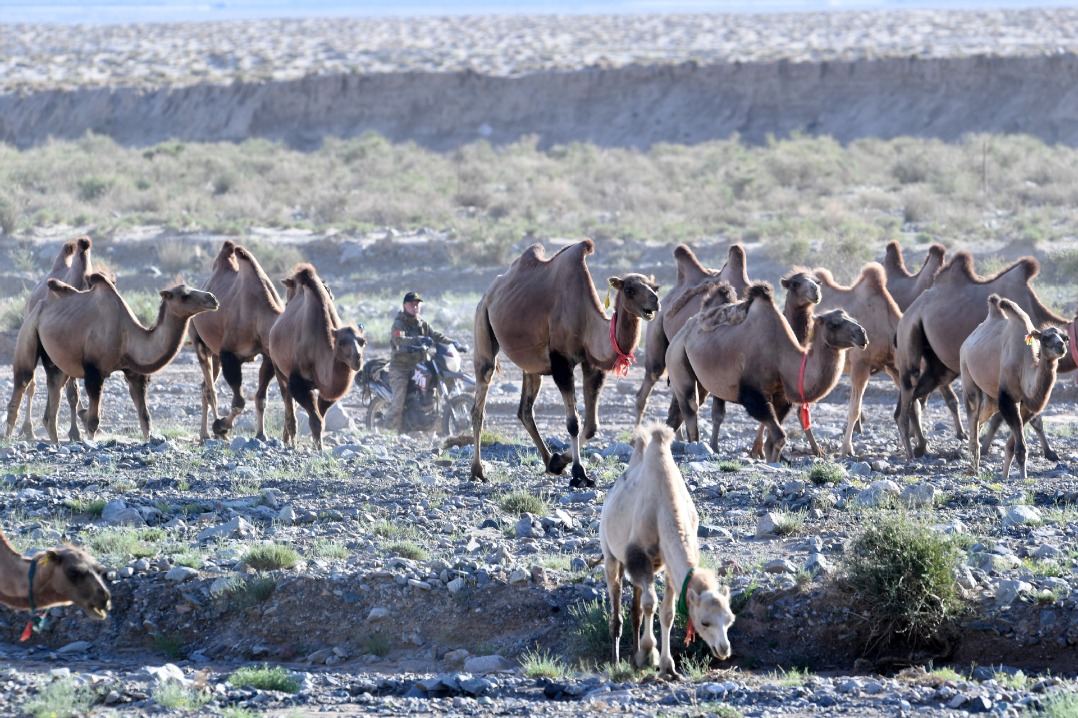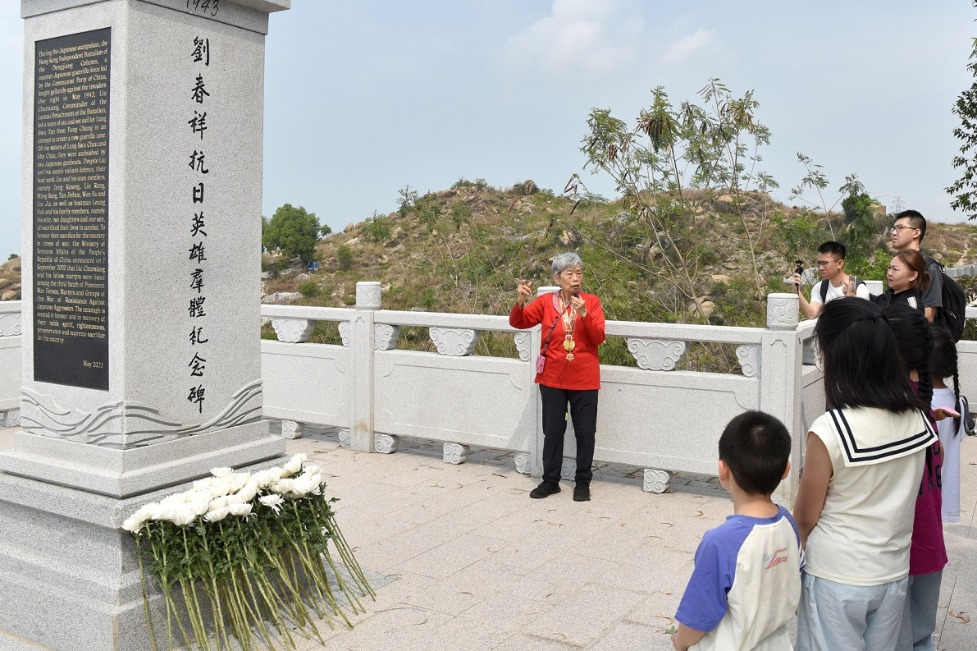Linguistic differences can't hide similarities

People visiting the Chinese mainland from Taiwan may be surprised to see sliced, stir-fried tudou featured as a regular dish on menus.
That's because tudou means "peanut" in Taiwan, but "potato" in the Chinese mainland. Similarly, people on the island will laugh if you use tudou to describe a potato there.
It's a joke often encountered in cross-Straits exchanges.
Of course, that's just the tip of the iceberg. Although the mainland and Taiwan share the same linguistic heritage, there are many differences in terminology, tones and written characters.
Taiwan people don't roll their tongues and they tend to drop the "h" sound from words. For example, when saying shibushi ("isn't it?"), the dropped "h" leads them to pronounce it sibusi.
If you have a friend from the island, you may find yourself imitating their mode of speech.
The language has evolved in different ways on each side of the Straits, but those differences don't stop people from communicating.
Last year, I came across a livestream in which Huang Hsiao-ting, a young woman from Taiwan, was selling produce alongside an official from Guanghe, a county in Gansu province.
Their accents sounded a little odd side by side, but they made efforts to be intelligible when they spoke.
This special pairing attracted attention from me and a lot of others netizens.
We wondered why a woman from Taiwan was selling mutton from Northwest China, because it is rare to find island people livestreaming on the mainland's social media platforms, let alone having a connection with such a distant place.
I managed to contact Huang. She told me she works in Shanghai and the livestream was a charity activity she enjoys doing in her spare time.
She said her sales partner's strong accent sometimes made their discussions difficult, but they repeated things over and over until they understood each other.
If they came across differences in terminology, they explained them to each other.
Huang added that when she was buying fruit at a stall in Guanghe, she couldn't understand a single word the vendor said, so she just smiled and assumed the woman was explaining how to eat the fruit.
Great patience can overcome communication barriers-and at the very least, sincerity and kindness can connect hearts and minds.
Actually, the differences between the two sides of the Straits can also be seen in various fields of social development, in people's opinions and the way they do things.
I believe these differences can coexist and complement each other in the ongoing process of integrated development on the basis of mutual understanding and tolerance.
In recent years, many talented people from Taiwan have used their expertise to help poor residents of mainland villages as part of the nation's anti-poverty campaign.
They have built 500 water tanks in mountainous areas of the Guangxi Zhuang autonomous region to solve problems in obtaining fresh drinking water. They have also introduced agricultural techniques from Taiwan so people can plant broccoli in Liaoning province and even grow dragon fruit in the deserts of Gansu.
As the government promotes its rural revitalization strategy nationwide, talent from Taiwan-where a similar strategy was employed decades ago as the island started the urbanization process earlier than the mainland-will have a good stage to illustrate their skills.
Of course, differences will still exist in cross-Straits exchanges, but I guess when people come across the "potato/peanut" thing, they will just laugh it off as usual.

- Zhejiang leads in innovation, IP development
- Lotus sanctuary dazzles at wetland park in Chongqing
- Nearly 5,700 residents relocated amid heavy rain in Jizhou, Tianjin
- China to offer nationwide childcare subsidies
- China sees better air, water quality in H1
- Heavy-ion accelerator integrating into cancer treatment in China





































